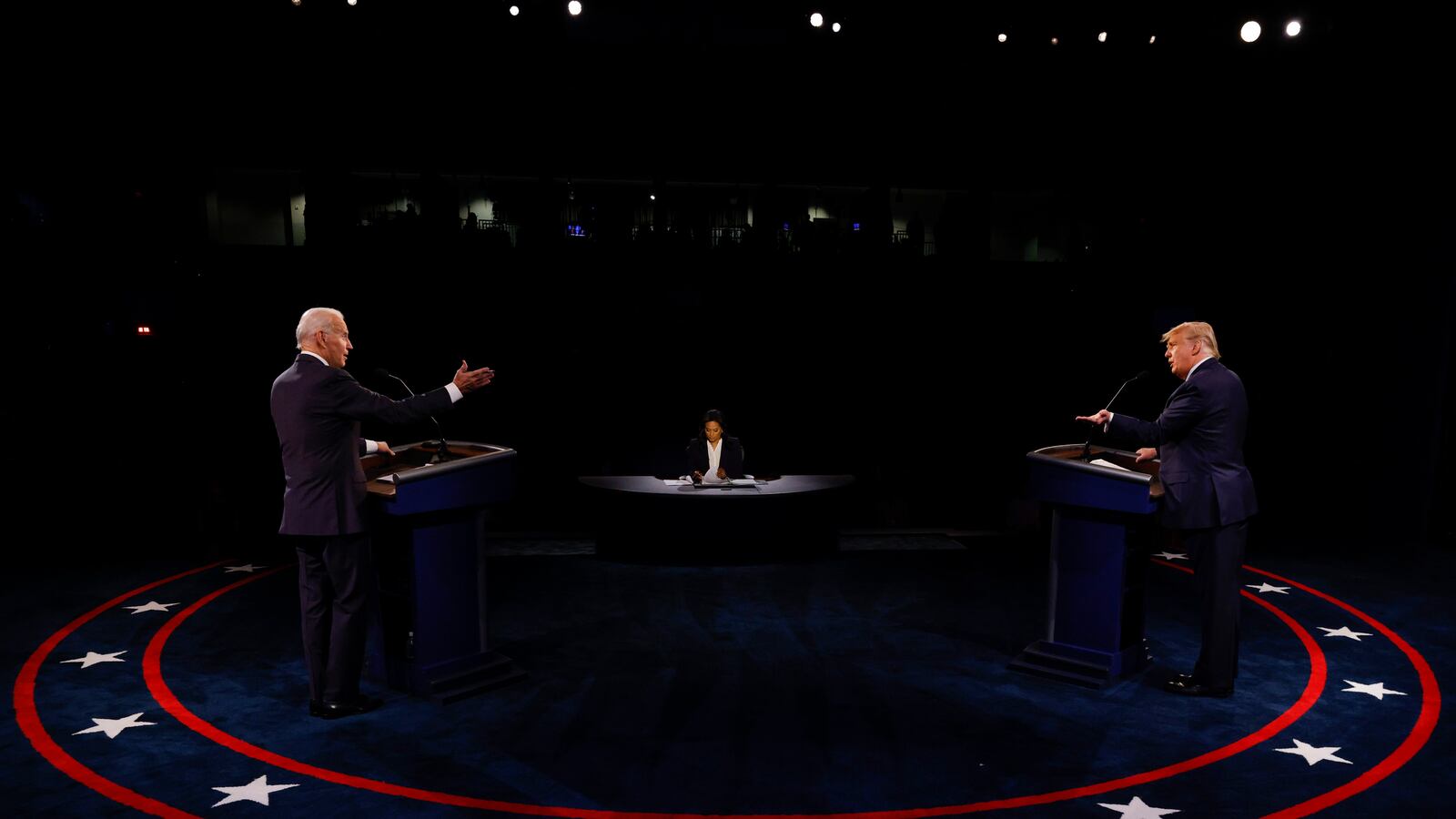Your assignment: Watch the three presidential debates. Identify the key issues. Trace the candidates’ arguments. Note also their rhetorical styles and strategies. Ultimately, who would you deem the winner, and why?
Dear Student,
For homework, I asked that you watch the debates.
I’m sorry.
President Obama once called teachers nation builders. I thought, by crafting this assignment, I was fulfilling that role. For citizens of a democracy, debate-watching seems an essential exercise. In an election year, what could be more important than to watch our candidates debate, and to assess their visions and plans for our country’s future?
Watch the three presidential debates. Student, I thought this was the most meaningful, important homework I could give to you.
But I was naive. And I’m sorry.
I don’t know what meaning, really, you could have drawn from these debates. The first was embarrassing to watch and impossible to follow. The second was no debate at all: tepid town halls, concurrently scheduled, precluding an actual exchange of ideas.
As for the third. The pundits say it was better. What a relief, one said in their post-show. An actual debate!

But Student, I am not sure I agree. It was calmer, sort of. And clearer, sort of. But I fear the nightmarish first debate has sparked lenient interpretations of the third. Here is what I saw: A first-day-of-kindergarten lecture, facing our two presidential nominees, about the importance of taking turns. Muted microphones. Constant interruptions of the moderator, who yes, held her ground, but still had to work too hard to do so. As the night wore on: dodged questions, personal attacks, canned refrains.
So, was it calmer? Sure. But I don’t believe we are any better for it. And this debate was still not good enough to have been your homework.
Even on a groggy Monday, Student, you and your peers argue with more clarity and conscience and skill. Watching our President, especially, I can’t even say that you learned how not to debate. You already know not to constantly interrupt. Or lie.
Since watching these debates was a waste of your time, I’d like to make it up to you. Perhaps, not too many years from now, we can try again. In my future dream debate, when the livestream commences, you’re not looking at two white men. White, straight, cisgender, able-bodied, wealthy men. In a world where we hope to disrupt supremacies — supremacies that steel themselves and fight to survive — such men simply cannot be our only presidential options. Instead, Student, your candidate pool is a tapestry of people unique in their identities, reflective of our diversities.
And Student, I hope that pool is larger than two candidates. My dream debate has variable contenders: maybe three, maybe five. Somehow, we’ve broken away from this two-party system that so clearly fails us. Red, blue. Right, left. In almost every other area of our lives, we embrace a range of options. Most of us can’t even settle for two streaming services. But in politics, it’s this or that or we can’t win. We can’t even play to win.
So, I dream of a debate with many candidates whose ideas are novel and whose platforms are more nuanced than we are used to. We will need to listen more carefully, study more thoroughly, and think more deeply. But I know, Student, that we are up to the task.
Student, here’s the dreamiest part: However many candidates there are, and whoever the candidates may be, on debate night, they actually debate. They answer the questions asked. They construct arguments and marshal evidence. They listen to one another’s responses. They avoid jargon and slogan and platitude. They do not lie. They might get fiery, and I’m fine with that: I care more about civic discourse than civil discourse. But their fire is fanned by ideas and ideals —not by insult and intimidation.
Student, the candidates’ discourse is so good, that when this dream debate is over, you will say: Wow. I learned so much. I have so much to think about.
That is my dream. But Student, I have fears, too. I fear that we might never see a debate like this. I fear that our country, strong and beautiful as it can be, might not find a way to recover, that it might not ever host a debate good enough to be your homework. Or worse, that our democracy might never see a presidential debate again — at all.
I’m more scared today than I am optimistic. But I do cling to some hope. I cling because I know that our history has borne not just oppression, but also resistance.
Student, it is your generation leading the way. I see in you an incredible will to bend the arc toward justice, more rapidly and acutely than ever before. Should my dream debate take place, it will be because you spoke out and stood up. It will be because you poured your time and your talents into thwarting threats to our democracy. It will be because we listened to you and acted by your side.
Regarding the assignment. Student, never mind. Don’t analyze the debates. Bending the arc — not watching it — is your more pressing homework.
Mine, too.
— Your teacher.
Andy Malone is a doctoral candidate in Curriculum & Instruction at the University of Virginia and manages program design for a charter school network in New York City. He is a former elementary school teacher and middle and high school principal.



